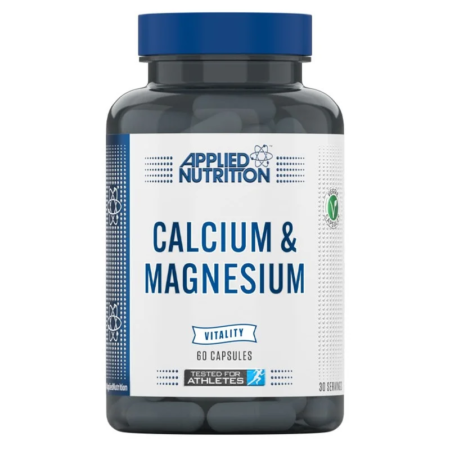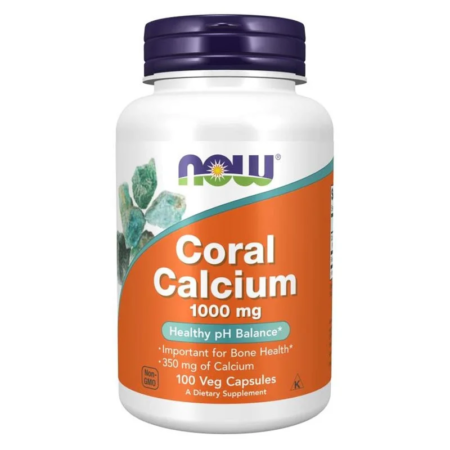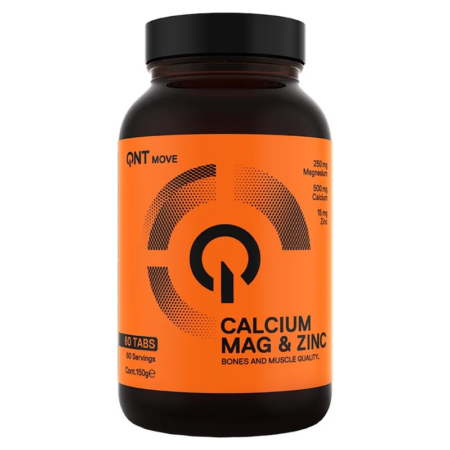Calcium
Calcium is an essential mineral that plays a vital role in maintaining overall health. It is most known for its importance in bone health and teeth strengthening. Calcium is found in many foods, such as dairy products, leafy greens, and fortified foods, and it is also available as a dietary supplement.
Ensuring you get enough calcium is crucial, especially for young adults. This mineral helps in osteoporosis prevention by maintaining bone density. Additionally, it is necessary for heart rhythm regulation, making it a key component for cardiovascular health.
What is Calcium ?
It is the most abundant mineral in the human body, primarily stored in bones and teeth. It is critical for maintaining the structure and strength of the skeleton. In addition to its structural role, calcium is essential for various physiological functions, including muscle contractions and nerve signaling.
Our bodies cannot produce calcium, so it must be obtained through diet or supplements. Adequate intake of it is important for people of all ages to ensure proper growth, development, and maintenance of healthy bones and teeth.
The Health Benefits of Taking Calcium
This mineral offers a wide range of health benefits that are essential for maintaining a healthy body. One of its primary benefits is supporting bone health and preventing conditions like osteoporosis. It also plays a crucial role in teeth strengthening, ensuring that teeth remain strong and resistant to decay. Furthermore, calcium is involved in heart rhythm regulation, helping to maintain a steady heartbeat.
- Calcium aids in osteoporosis prevention by maintaining bone density and strength.
- It supports nerve transmission, facilitating communication between the brain and body.
- It is necessary for blood clotting, ensuring proper wound healing.
- It contributes to weight management by promoting a healthy metabolism.
- This mineral plays a role in muscle function, helping muscles contract and relax properly.
- It supports dental health by preventing tooth decay and strengthening enamel.
- It helps maintain cardiovascular health by supporting blood vessel function and heart rhythm.
- Regular calcium intake promotes overall wellness by supporting various bodily functions.
Deficiency Risk Factors
Calcium deficiency can arise from various factors, making it important to be aware of these risks. One common risk factor is poor dietary intake. Many people do not consume enough dairy products or other calcium-rich foods, such as leafy greens and fortified cereals. Another risk factor is vitamin D deficiency, as vitamin D is essential for calcium absorption in the body.
Additionally, certain medical conditions can increase the risk of calcium deficiency. For instance, individuals with lactose intolerance may avoid dairy products, leading to lower calcium intake. Similarly, those with conditions like celiac disease or Crohn’s disease may have impaired calcium absorption.
Are Calcium Supplements Harmful?
These supplements can be beneficial for those who do not get enough calcium from their diet, but there are concerns about potential harm. High doses of them have been linked to an increased risk of kidney stones. This occurs because excess calcium can combine with other compounds in the kidneys, forming stones.
Furthermore, some studies suggest that excessive calcium supplementation may be associated with cardiovascular issues.
Types of Calcium Supplements
There are several types of calcium supplements available, each with its specific benefits. The most common forms are calcium carbonate and calcium citrate. Calcium carbonate is often recommended because it contains a high amount of elemental calcium, making it cost-effective. However, it is best taken with food to enhance absorption.
Calcium citrate, on the other hand, is more easily absorbed by the body and can be taken with or without food. This form is particularly beneficial for individuals with low stomach acid or digestive issues. Other forms of calcium supplements include calcium gluconate and calcium lactate, though these are less commonly used. Understanding the differences can help you choose the best supplement for your needs.
How much calcium do you need per day?
The recommended daily intake of calcium varies by age and gender. For most adults, the recommended amount is around 1000 mg per day. Women over 50 and men over 70 should increase their intake to 1200 mg per day due to the higher risk of bone loss. Children and teenagers, who are in critical stages of bone development, require about 1300 mg daily.
It’s essential to obtain calcium from both dietary sources and supplements if needed. Foods rich in calcium include dairy products like milk, cheese, and yogurt, as well as non-dairy sources such as almonds, tofu, and fortified plant milks.
Calcium Important for Bone Health
It plays a crucial role in maintaining bone health throughout life. It is the primary mineral found in bones and teeth, providing strength and structure. Adequate calcium intake helps prevent bone-related disorders such as osteoporosis, a condition characterized by weak and brittle bones. Ensuring sufficient calcium during childhood and adolescence is particularly important, as these are peak bone-building years.
In adults, maintaining calcium levels can help slow the natural bone loss that occurs with aging. Weight-bearing exercises, along with a diet rich in calcium, are essential for maintaining bone density. For your body to absorb the calcium you consume, you also need vitamin D. Your skin makes vitamin D when it’s exposed to sunlight, but foods like fatty fish, egg yolks, and liver contain it as well. Often, foods that are fortified with this mineral are also fortified to contain vitamin D to aid in the absorption of the calcium. Not getting enough this mineral—or your body not absorbing enough of what you take in—can lead to health problems often involving weakened or fragile bones.




















